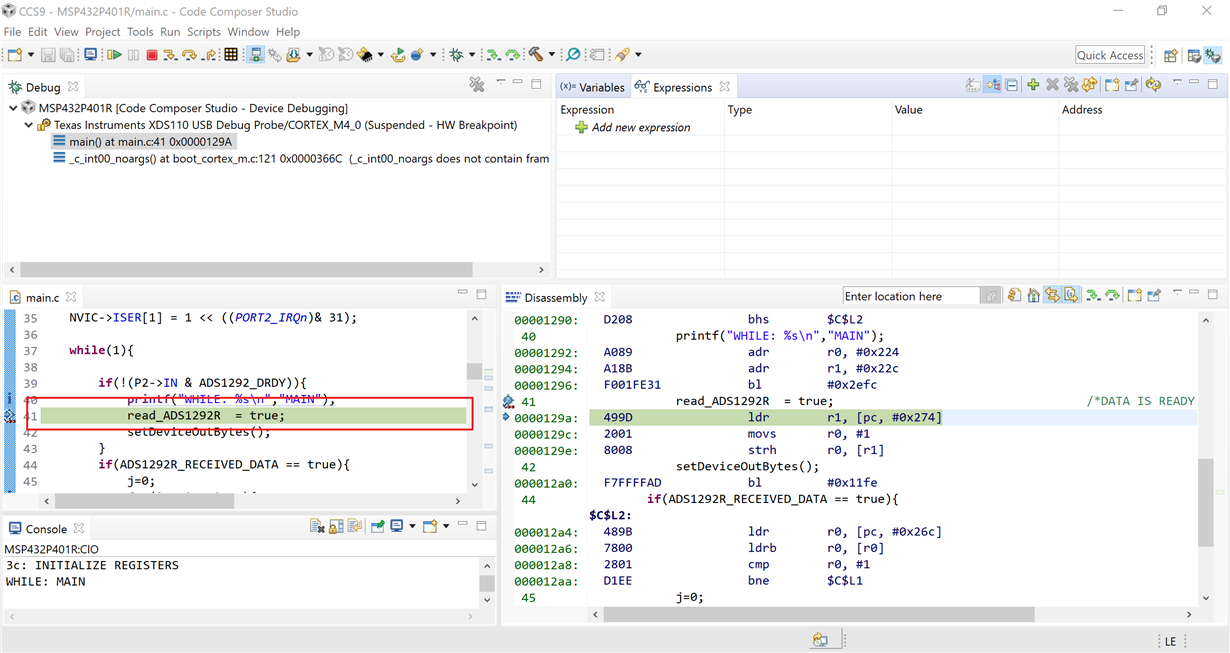Part Number: MSP432P401R
Tool/software: Code Composer Studio
Hello I have face some problems because I am doing a routine and I need to know when the P2.5 change from the high to low or the low for high, can someone help me please. This is a piece of my code...
#define ADS1292_DRDY BIT5
int main(void){
P2->DIR &= ~(ADS1292_DRDY); /*SET THE ADS1292R DRDY PIN TO INPUT*/
P2->REN |= ADS1292_DRDY; /*USE INTERNAL RESISTOR*/
P2->OUT |= ADS1292_DRDY; /*THE INTERNAL RESISTOR IS PULL UP*/
P2->IES |= ADS1292_DRDY;
P2->IFG &= ~(ADS1292_DRDY);
P2->IE &= ~(ADS1292_DRDY);
while(1){
if((P2->IN & ADS1292_DRDY) == false){
// code
}
}
}


